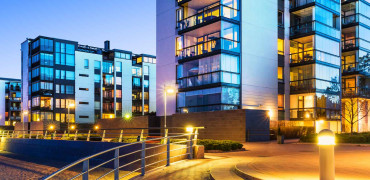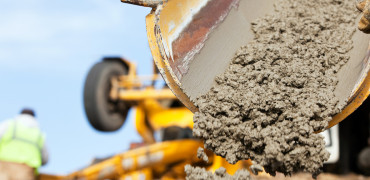The global pandemic has been difficult for everyone.
I remember at the end of 2019 there were rumours that a recession might be on the way and I was worried that we may have been unnecessarily talking ourselves into financial downturn.
No one could foresee what was about to hit us. Covid-19. The biggest global disaster imaginable.
Who would have thought that the majority of the entire planet would simply stop.
A ‘conventional’ recession, although awful, would have been a walk in the park compared to what we’ve experienced in the last 18 months.
Building the greenest, zero carbon homes should be the norm rather than the exception
Disruption was rife
I remember the turmoil in the first few weeks of the national lockdown with everyone trying to work out what we could do and couldn’t do. Construction was allowed to continue and was seen as ‘essential work’ to the UK economy.
However, there was still massive disruption across the industry. Fearful of catching the virus some construction workers simply wouldn’t turn up to work, others found it difficult to travel to physically get to site.
Some would catch the virus and have to self-isolate for weeks, others would catch the virus and not make it through.
My heart goes out to anyone who lost a friend or relative to Covid.
The lack of building materials for the industry soon became apparent as factories closed or were forced to a reduced their capacity of workers.
Transporting supplies and moving products from one country to the next became really difficult.
From one lockdown to the next rules and regulations changed from one country to the next. Disruption was rife.
DIY demand helped push up prices
As people stayed at home the amount of home DIY being carried out went nuts. All those home spare-time, DIY jobs we had put on hold (or avoided!) for years now became our full-time jobs!
This meant orders for materials online increased massively.
The combined effect of increased demand with a supply chain struggling to meet supply meant that the cost of materials went through the roof.
In UK Lockdown 1, there was a huge problem getting your hands on finishing plaster. I saw 10 bags of plaster (normally around £7-£8 per bag) being sold online for over £800! That’s bonkers!
There were record surges in the price of steel, timber and bricks in May this year.
Even the costs of finishing materials such as paint and varnish is up by a third in the last year according to the Construction Products Association.
With the number of home renovations booming and the government pushing for more and more new homes to built across the country, there is even more pressure and demand for building materials.
Supply chain pressures
Supply chains for many construction materials, particularly from the EU, have been stretched since early 2020. Throw Brexit uncertainty into the Covid-19 mix and you start to see the scale of the problem.
Oh, and let’s not forget the global shortage in raw materials, labour rates going up, and (wait for it) the national shortage in lorry drivers.
Yes, there are active campaigns at the moment calling for action to solve the UK’s HGV driver shortage!
Predictions are that struggling supply chains for building materials and their delivery to sites across the country aren’t going to get much better anytime soon.
Living in harmony with the planet
We are facing tough times ahead. The word being used so much at the moment is ‘recovery’. But, I’m an eternal optimist.
What we have been through over the last year should make us look at all aspects of our global economy.
Is a capitalist global economy obsessed by ‘growth’ really the right way for us to live in harmony with the planet?
This is an opportunity for us to really look at the ways we design, manufacture and transport the things we need to build from.
Should we really still be using materials like steel and concrete that we know have a hugely damaging affect on the planet?
A frightening statistic i came across recently is that China has used more concrete in the first 16 years of the 21st century than America used in its entire 20th century!
Just think about the rate of development across the United States over the last century. That is a staggering amount of concrete.
And if I’m honest I don’t see much change across the UK housing industry when i see how things are being built at scale. Estate after estate being thrown up very quickly using a lot of concrete in poured and precast blocks form.
Concrete is one of the most polluting building materials we can use.
We have to change the way we do things and we have to change things quickly, even during tough times.
An excuse to lower standards
My worry is that some powerful companies in the home building industry are using COVID as an excuse to push back on improved design, building and ecological standards.
I realise there are big financial pressures at the moment, but is this really the right time to be stepping back from important environmental commitments and changes we know we have to make?
The government keeps saying “tough times call for tough decisions” but that shouldn’t mean a race to the bottom. It should mean a genuine shift and radical improvement in how we do things.
If they claim we need “Build Better, Build Beautiful” then we can’t just talk about it, we need to do it!
Building the greenest, zero carbon homes should be the norm rather than the exception, if we want to see genuine change in an industry that seems to struggle with change.
The biggest challenge
Of course the health and well-being of people should take priority over anything else.
Of course we need an economy that provides secure jobs so people can pay their bills and put food on the table.
But, we are also in the middle of a climate crisis that could have devastating effects on our very existence.
How we balance the recovery and growth of our global economy while our shared home, Planet Earth, is getting warmer by the day, is the biggest challenge we face.
George Clarke is a TV presenter and architect



